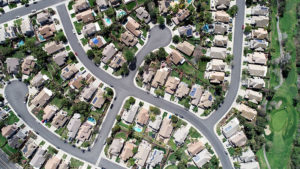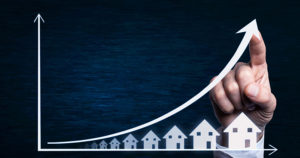How Does Real Estate Season Affect Market Value?

The real estate industry can be a tricky path to navigate, especially if you fail to factor in timing. As with anything in life, timing can affect the outcome of any given endeavor. Learn how the real estate season influences the market value of properties below.
Browse By Category
Sign up for Our Newsletter
The real estate industry can be a tricky path to navigate, especially if you fail to factor in timing. As with anything in life, timing can affect the outcome of any given endeavor. Learn how the real estate season influences the market value of properties below.
A Guide to Understanding the Real Estate Season
There are many things that can affect the market value of a property or unit. Location is one. If a property is situated in a high-end neighborhood, its market value is naturally higher. The surroundings can also play a part in influencing the market value of a property. For instance, if more amenities start to open in your neighborhood, it causes the values of nearby properties to rise as well.
Another thing that can shape the market value of a property is curb appeal. In other words, how attractive the property is, especially when viewed from the street. Curb appeal itself can be influenced by a lot of things, such as landscaping, the house exterior, and even trash bin placement. It is why homeowners associations place a large focus on how properties look and have restrictions to control that.
Beyond location and curb appeal, though, one thing that both buyers and sellers must consider is the season. In fact, the month you choose to either buy or sell a property can inform your closing price.
How Seasons Impact Real Estate
Believe it or not, the changing seasons and weather can affect real estate market trends. It can also influence consumer behavior. Here are some seasonal property factors you must take note of:
- The Holiday Season. Because of the busy schedules associated with the holiday season, it is unusual for there to be a lot of buyers or sellers during this time. Most people are more focused on attending events and doing holiday errands. Additionally, the weather conditions during this time are typically not conducive to real estate.
- The School Year. The school season is a significant factor, too. Families typically do not want to move houses in the middle of the school year. In fact, according to Realtor.com, 73 percent of buyers with children place importance on school boundaries when searching for homes.
Best Season to Buy and Sell a House
 House hunters naturally want to get the best price for the property they want to buy. Although summer is the best time to view houses because you get to see the state of the landscaping, it is not really a good time to buy a house. The best season to buy a house is between late fall and early winter. January, specifically, is when buyers find good prices for new homes.
House hunters naturally want to get the best price for the property they want to buy. Although summer is the best time to view houses because you get to see the state of the landscaping, it is not really a good time to buy a house. The best season to buy a house is between late fall and early winter. January, specifically, is when buyers find good prices for new homes.
During these colder months, prices tend to drop. Additionally, the number of buyers also decreases, so there is less competition overall. Less demand in the real estate market directly translates to better deals.
Conversely, the best season to sell a house is during the summer. During this period, buyers are more inclined to go house hunting because of the good weather. Additionally, families with children want to close and move in before the school year begins. In summer, there is a higher demand, which means home sellers can usually set higher prices. In fact, according to ATTOM Data Solutions, sellers experience the highest premiums (at 9.2 percent) during the month of June.
Worst Season to Buy and Sell a House
When it comes to the worst seasons to buy and sell a house, the real estate chart simply flips. The worst season to buy a house is during the summer. This is mainly attributed to the higher demand experienced during this season. April, in particular, is the busiest month out of the year for the housing market.
In the summer, there are more prospective buyers looking to close deals. Therefore, sellers can demand higher prices. It is also difficult to land the house you want because there tends to be more competition.
From a seller’s point of view, on the other hand, the reverse is true. The worst season to sell a house is during the winter, especially in the month of December. During this time, sellers experience significantly lower premiums, with the lowest at 3.3 percent. The decline usually starts in September and continues until January to early February. The inclement weather and general busyness of the season contribute to the low demand.
Considering the Region
Although the weather plays a major role in determining the best real estate season, it is worth noting that not all regions are made equal. The Northeast and Midwest, in particular, experience more pronounced effects than the South and West regions. This is because the Northeast and Midwest have more contrasting winter and summer seasons. Winters in these regions are colder and more evident, whereas winter in the South and West regions do not differ greatly from summer.
That being said, the best and worst times to buy and sell a house will also depend on your region. If you live in a state where winters are not very cold, you may find that the demand remains mostly the same throughout the year.
Real Estate Seasonality FAQs
Q: What are the busiest months for real estate?
A: The busiest months for real estate are May, June, July, and August. In fact, according to the National Association of Realtors, 40 percent of annual sales take place during this four-month period.
 Q: What is the peak real estate season?
Q: What is the peak real estate season?
A: Summer is the busiest time for the real estate industry. It is during this season that inventory, sales, and real estate web traffic reach a peak.
Q: What is the slowest month for real estate sales?
A: Historically, December is the slowest month for real estate sales. During this time, buying and selling houses comes to a screeching halt, with very little inventory and even less activity.
Q: Which month are most houses sold?
A: The four-month period from May to August is the busiest time for the housing market. Most houses are sold during this time. Additionally, home sellers usually experience the highest premiums during May and June.
The Importance of Professional Help
The real estate season is simple enough to understand, but that does not mean you can take matters into your own hands. Whether you are buying or selling a house, it is imperative to seek the help of a real estate agent. An experienced professional knows how market trends work and can help you land the best deals. In addition, real estate agents have knowledge of the local scene and can provide you with valuable information.
RELATED ARTICLES:
- HOA Snow Removal: Policies, Contracts, And FAQs
- What Does An HOA Architectural Committee Do?
- 6 Benefits Of HOA Living
Trending Now
Related Article
Sign up for Our Monthly Newsletter
Sign up below for monthly updates on all HOA Resource

















